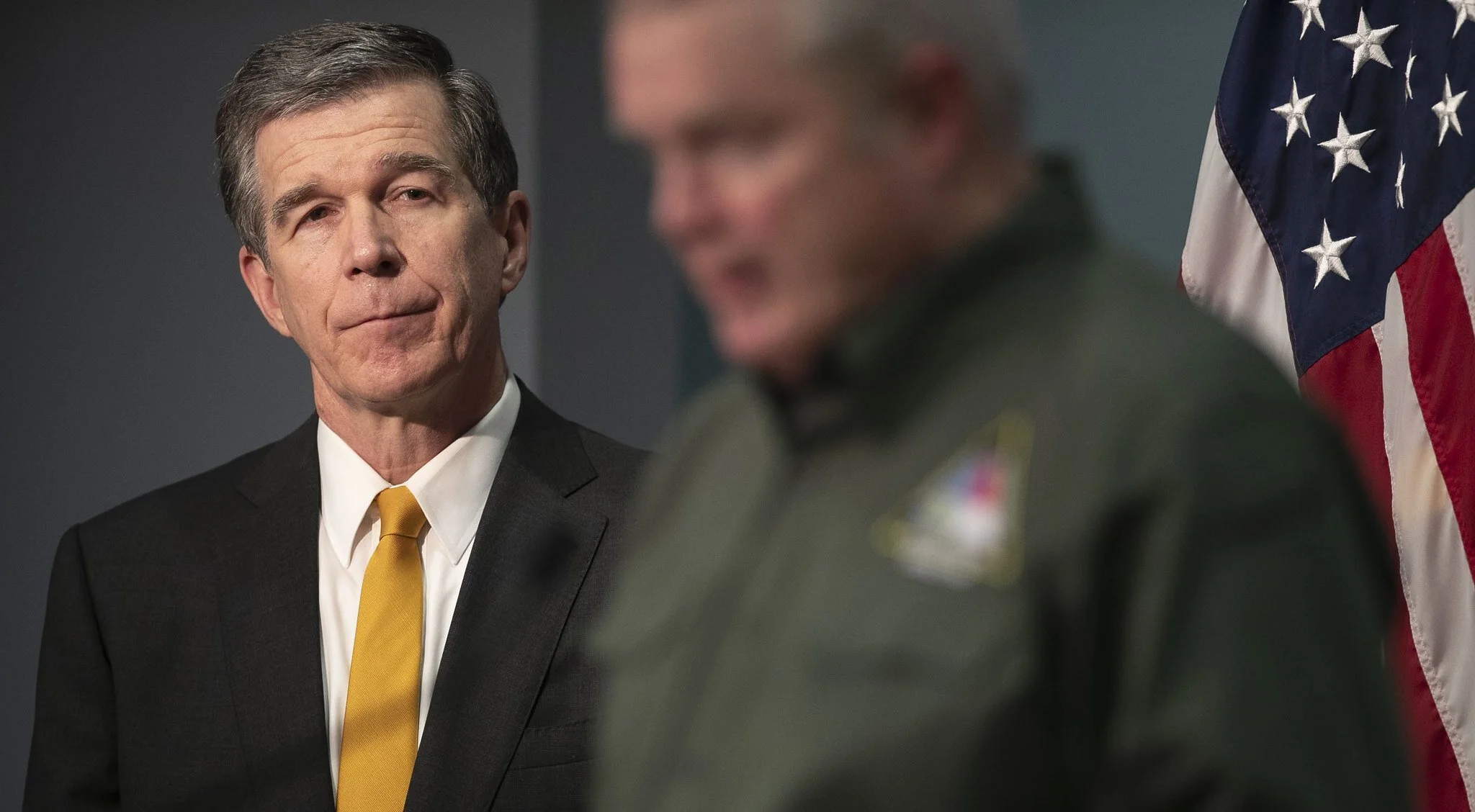Governor Roy Cooper and N.C. General Assembly Debate Executive Power
North Carolina Governor Roy Cooper is facing pressure from N.C. Republicans to relinquish the executive power he has leveraged over the past year. Source.
The COVID-19 pandemic has exposed many aspects of our government as flawed, most notably our preparedness for and ability to manage a public health crisis. However, the pandemic has additionally exhibited the weight of emergency executive powers granted to governors across the nation, causing concern for some.
We have been enduring the pandemic for a year now and as a result have been subjected to numerous executive orders and mandates, both federally and statewide. The extent to which many of the mandates have lingered has been a cause of concern for many citizens, especially members of rival parties.
In North Carolina, Governor Roy Cooper first evoked emergency powers in March 2020 at the onset of the pandemic and has continued to exercise his authority as we enter the end of March 2021. Currently, Cooper’s executive orders are in effect until he decides to make an amendment to change them; however, the NC General Assembly is seeking to curtail Cooper’s power. The bill in the General Assembly, House Bill 264, would require every governor to seek approval from a majority of the Council of State before being allowed to issue a long-lasting executive order. Additionally, the bill would only allow an executive order to remain for a maximum of seven days without approval from the Council of State before being automatically voided.
Republicans are at the forefront of this movement, claiming Cooper’s power is unchecked and has maintained a great degree of power for too long. For many months now, Republicans have criticized Cooper’s mandates believing they have gone too far and argue that now is the time to limit his authority.
The primary argument for the passage of this bill is that many businesses, especially small businesses, have experienced economic hardship as a result of Cooper’s policies, and many Republicans believe it is time for the state to reopen before more economic hardship manifests. Upon reviewing the past year, many believe Cooper should not have implemented blanket mandates and instead should have individualized the mandates based on specific areas of the state.
A similar bill attempted to be passed over the summer, but Cooper vetoed the bill and the General Assembly failed to garner enough votes to override the veto. Republicans believe this time will be different considering the decline and in cases and the availability of the vaccine. Moreover, there is more optimism due to the fact there are more Republicans in the General Assembly which would permit them to override another veto, however, they also believe there is more public support for the bill than there was in the summer.
Critics argue the bill is partisan and seeks only to limit Cooper’s power due to his different party affiliation from the majority in the NC legislature; however, Republicans argue this is a nonpartisan effort, and they would have considered the bill regardless if there were a Republican governor. The primary reason is summarized by one Republican lawmaker: “no one person should have the authority to shut down an entire state.” Yet some argue this could hurt more than help as it may prevent qualified candidates from running in the future, if the position will be a largely ceremonial role. It’s important to note that the courts have continued to uphold Cooper’s mandates after being challenged.
Currently the bill has already passed the House Judiciary Committee but still needs to be approved by the House Rules Committee before going to the governor’s desk. If passed, Cooper’s powers will be limited requiring a majority of the Council of State to agree if the mandate is to last more than seven days. Another important note is that currently six of the nine members on the Council of State are Republican, thus allowing them to stop Cooper’s mandates.
Luckily, North Carolina has debated the issue peacefully and has not had issues like New York in curtailing executive orders.

